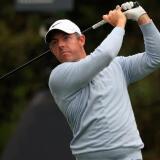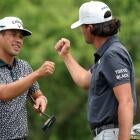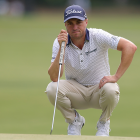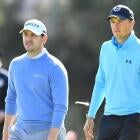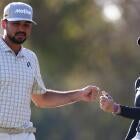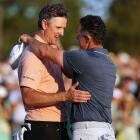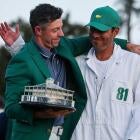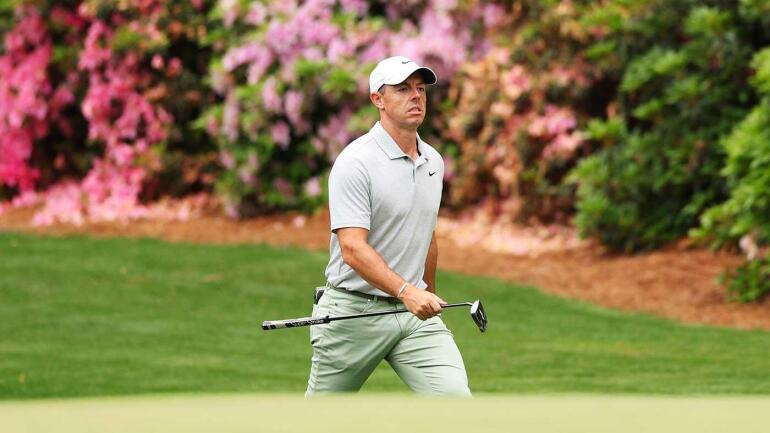
AUGUSTA, Ga. -- Are you result-oriented or process-oriented? Really think about it. Be true to yourself. Look at the man or woman in the mirror and answer with honesty. There are no wrong answers -- it is personal question, after all.
This question is being posed to provide context around what professional golfers must experience when they tee it up at Augusta National Golf Club. The 89th edition of the Masters welcomes 95 players with dreams and aspirations.
Those are 95 unique players with 95 unique perspectives and 95 unique answers to the aforementioned question.
Some of their lines of thought are well known; they have been spoken and published for years.
Scottie Scheffler could be dubbed "The Process" (a far more successful version that than employed by the Philadelphia 76ers) at this point in his career. The two-time champion cares about his attitude, his preparation, his approach to each and every shot. His ability to reset and do it all over again.
Beyond each golfer's process not being the same, neither are their desired results. For an older former champion or an amateur in the field, success at the Masters may be as simple as playing the weekend. The same could be true for one debutant; however, a different first-timer may believe he can claim a green jacket on his first go around these 18 pristine holes.
The result therefore affects the process if one puts the cart before the horse. That may not necessarily sound detrimental, but at Augusta National?
That's the beauty of the course. It's why this tournament can be so difficult to conquer. From the start, one must walk onto the tee box at Tea Olive with a process-oriented approach while avoiding the temptation -- that certainly grows as one begins to find success transversing this course -- to become results-oriented.
Many have faced this dilemma and failed to balance their desires with their approach. For no one has that been more apparent over the last decade than Rory McIlroy.
McIlroy's desired result it to win the Masters, claim a green jacket and become just the sixth golfer to complete the career grand slam. How do we knows this? He's been asked about it -- and openly discussed it -- for more than a decade.
On Thursday, McIlroy begins his 11th such attempt since capturing the 2014 PGA Championship.
In 16 attempts at winning the Masters, he has seven top 10s (five straight from 2014-18), including an excruciating T2 in 2022. Over the last four years, though, he's missed the cut twice -- largely due to the mental toll that desiring such a result has taken on him.
What process will McIlroy need to take to achieve his desired result?
For Rory, it has seemingly changed constantly over the last decade; each trio to Augusta bringing with it a new version. Like an eager consultant diving into Microsoft Visio, McIlroy has been keen on adding new decision points, subprocesses, preparations and requests even if not required. Efficiency is dashed, effectiveness soon follows.
He has tried everything from an 11th hour meeting with a mental guru to playing as many holes as possible during practice rounds. He has switched putters just a couple weeks before the tournament and arrived late into the week in order to avoid all the noise.
He became so obsessed with the pre-tournament process over the last decade, it almost seems he has sometimes forgotten about the one that actually matters.
Watch all four rounds of the 2025 Masters with expanded coverage from CBS Sports. It starts Thursday with Masters Live as we follow the best in the world across Featured Groups, Amen Corner and holes 15 & 16. Watch those streams live across Paramount+, CBSSports.com and the CBS Sports App with extended broadcast coverage Saturday and Sunday from 12-2 p.m. on Paramount+ and 2-7 p.m. on CBS.
The lead up to this year's Masters does appear different for McIlroy. The Process has been his main focus, not one of many offshoots like years past. He grabbed two wins before the calendar flipped to April for the first time in his career. He won at golf courses that require a thinking man's strategy in lieu of sheer strength. New, controlled swings that produce flighted shots with a softer golf ball have been introduced into his repertoire.
In McIlroy's words, he's trying to be like Scheffler. In his actions, he looks like him. The results have followed.
The true litmus test comes not during practice rounds or the Par 3 Contest, nor over 72 holes across the property. It comes Thursday afternoon on that tee box at Tee Olive. It comes when he sticks a peg in the ground and launches his first shot of the Masters into the air.
It resumes when he strikes his approach into the green. He'll chip or he'll putt, and then he'll move onto the next hole and do it all over again ... and again ... and again ... and again.
Sticking to this cadence is required for McIlroy to exit the first round with his head above water -- something he has rarely done at the Masters. In his last 10 opening rounds at Augusta National, he has compiled a 72.2 scoring average and broken 70 just once.
Rory has fallen victim to scoreboard watching and feeling left behind. In other words, he has been fixated by the result and not the process. Sometimes, mere hours into his tournament, the temptation gives in.
That's what will be so difficult for McIlroy if he finds his name high of the leaderboard Thursday evening of his 17th Masters. The temptation will only intensify. And it will get stronger Friday, Saturday and -- good heavens -- Sunday.
But McIlroy cannot think that far ahead. If he does, he will never get there.
![[object Object] Logo](https://sportshub.cbsistatic.com/i/2020/04/22/e9ceb731-8b3f-4c60-98fe-090ab66a2997/screen-shot-2020-04-22-at-11-04-56-am.png)







